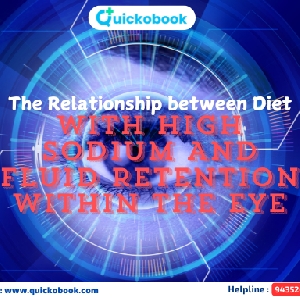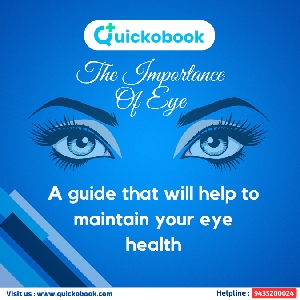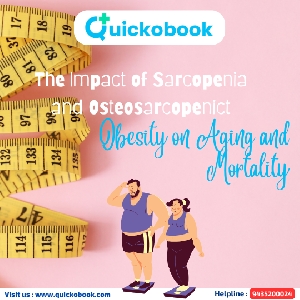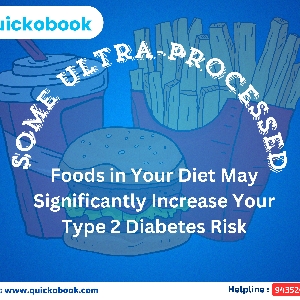The Relationship Between Diets With High Sodium And Fluid Retention Within The Eye
Introduction Sodium consumption is normally coupled with other diseases like cardiovascular disease and hypertension. Its role in the eye is not normally thought about. The study mentioned above is aware that excessive intake of sodium leads to water retention in the eye and macular edema and intraocular pressure. Overuse of sodium and its relationship with water retention in the eye, its mechanisms, and the effects on vision are covered in the article. Role of Sodium in Fluid Retention Sodium plays a central role in body fluid homeostasis. It regulates extracellular fluid volume by regulating water movement into and out of capillaries and cells. Sodium excess leads to accumulation of excess water in the body to provide osmotic balance, thus the accumulation of fluid in tissue in eyes, etc. Effect on Ocular Health Sodium fluid deposition in the eye varies based on varying structures of the eye. Ophthalmic disorders are most pertinent and clinically meaningful, which are affected most by sodium fluid deposition as follows: Macular Edema Macular edema refers to edema resulting from fluid accumulation within the macula, the most central region of the retina that is used in viewing objects in keen vision. Macular edema leads to blurring, distortion, and blindness. Excess sodium that causes water retention will trigger susceptibility to macular edema due to concurrent concomitant underlying conditions like diabetes mellitus or systemic hypertension. Elevated Intraocular Pressure (IOP) Excessive sodium consumption results in excess intraocular pressure (IOP), which is one of the biggest causative factors in glaucoma. Excess deposition of aqueous humor increases IOP, which destroys the optic nerve with time. Sodium also disrupts fluid balance, and excessive consumption will impair intraocular fluid drainage, leading to pressure and blindness. Hypertension and Retinal Damage Secondary hypertension due to excess sodium is very toxic to the eyes. The retina receives oxygen and nutrients from a group of retinal vessels and is very sensitive to systemic hypertension. Systemic hypertension kills the retinal vessels and creates hypertensive retinopathy by hemorrhage, inflammation, and blindness. Scientific Evidence Supporting the Link There have been some research that have established the association between excessive consumption of sodium and water retention within the eyes. It has been found that those with excessive sodium intake have excess water retention, and it also accompanies inflammation of body and eye tissues. Besides that, research among patients with hypertension has also proven that the greater the sodium intake by hypertensive patients, the more they are likely to develop eye diseases like high IOP and macular edema. READ ALSO:Let’s Understand The Importance Of Our Eyes: A Guide That Will Help To Maintain Your Eye Health Who is at Risk? Some individuals are more prone to the harmful effects of high sodium on the eyes, such as: Hypertension Patients: Hypertension patients are predisposed by nature to retinal injury and elevated IOP. Diabetics: Diabetics are at greater risk of macular edema, and excess sodium will certainly cause water buildup in the retina. Older Adults: Physiology of old age with compromised fluid regulation and thus more vulnerable to sodium causing eye disease. Kidney Disease Patients: Pathology of kidney disease leads to an inability to excrete excess sodium from the body and therefore still causing fluid accumulation. Nutritional Cues to Vision Well-being To assist in balancing the effect of sodium on eye health, patients need to have a balanced diet that is not excessively high in sodium and also good overall eye health. It has the following crucial tips: Restrict Use of Sodium Do not eat processed and packaged foods that contain high sodium. Use whole, fresh food like fruits, vegetables, and lean meat. Spices and herbs are excellent alternatives to salt to add flavor to food. Increase Fluid Intake Water balance intake removes excess sodium and prevents fluid overload. Do not overdrink caffeinated beverages and sweets, which are sure to dehydrate. Eat Eye-Friendly Foods Omega-3 fatty acids (in walnuts, flaxseeds, and fish) feed retinas. Antioxidant vitamins E, zinc, and vitamin C (in fruits, nuts, and leafy greens) protect against oxidative stress. Foods rich in potassium (avocado, banana, sweet potatoes) will neutralize the effect of sodium on water retention. Dietary changes and some behavior modifications will improve vision at its optimum: Optical Eye Test The standard eye test is able to pick up the development of sodium-stored eye disease. Eye care professionals in ophthalmic eye care can diagnose intraocular pressure and advise proper measures required. Exercise and Physical Exercise Daily exercise controls blood pressure and starts circulation to avoid hypertensive retinopathy and water build-up. Yoga and exercise may potentially increase overall cardiovascular fitness, with salutary collateral effects on the eyes. Care of primary health Diabetes and hypertension patients are requested to help physicians manage their disease. Control of blood pressure and blood sugar can or will avoid or postpone sodium-induced eye disease. Sodium-rich dieting is worst for the eye condition via water retention, elevation of intraocular pressure, and macular edema and retinal injury. People, especially those with some underlying medical condition, need to be careful against sodium intake in an attempt to maintain vision. Through the exercise of balanced food intake and moderation of lifestyle, the harmful effect of excess food sodium on vision is nullified by ongoing ocular health. Reduction in sodium consumption, balance fluid intake, supplementation of essential nutrients, and a healthy lifestyle can all contribute to eye health as well as the prevention of vision problems. With increasing awareness of the relationship between sodium and eye health, people can move forward to maintain their vision and health.
Read More






 Play Store
Play Store